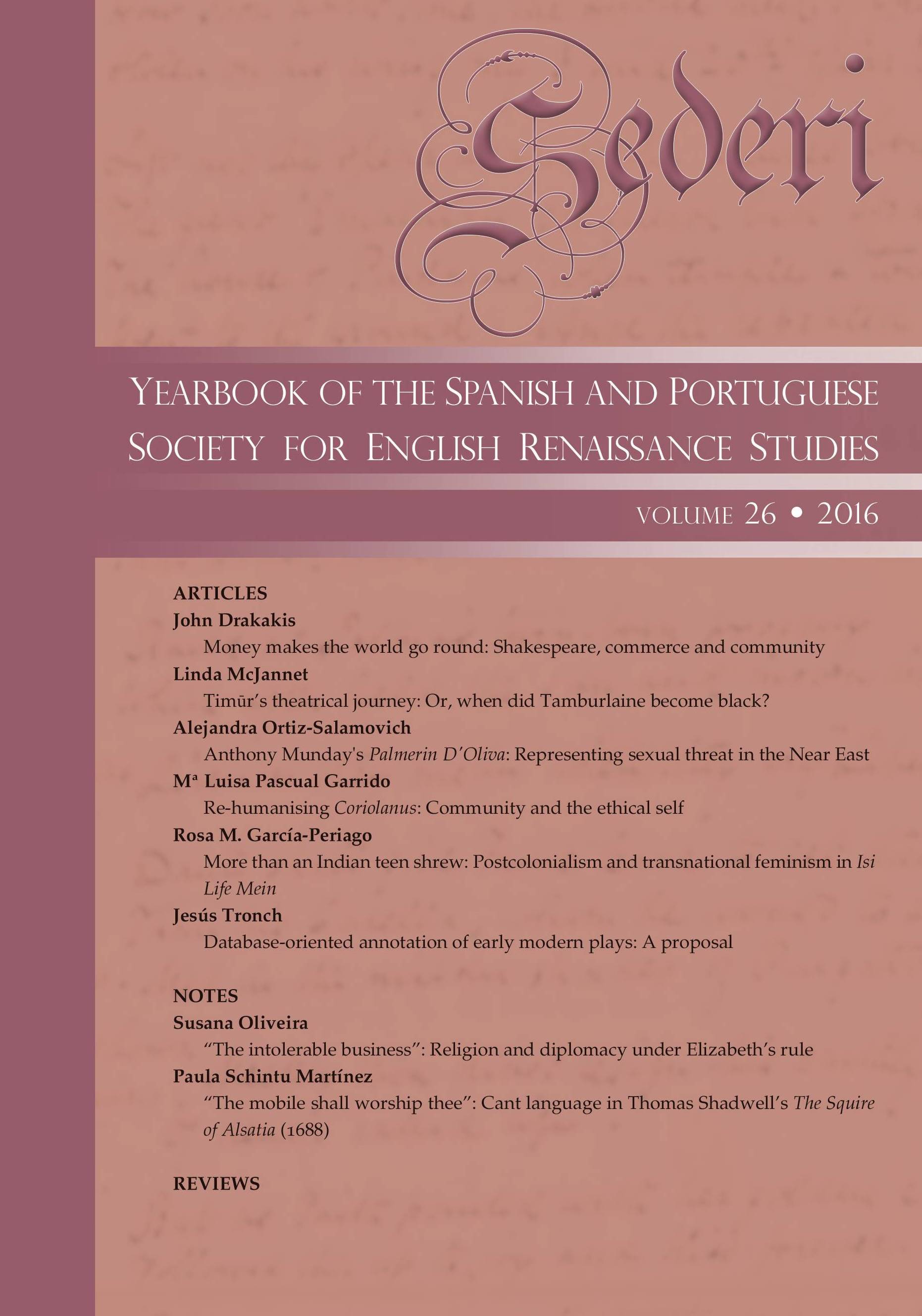Database-oriented annotation of early modern plays: A proposal
Abstract
In this essay, I explore the idea of annotating the electronic text of early modern plays having in mind the functionalities of a database in which the plays would be collected, and how the texts could be encoded so that a search for a given annotation could retrieve the corresponding segments in the play-texts. Although I refer to English plays of the 16th and 17th centuries, I do not envisage any actual database project for a specific corpus of plays; rather I reflect generally and theoretically on the concept of database-oriented annotation, which involves both interpreting aspects of the play (such as the use of proverbs, allusions, oaths, images, etc.) and associating these interpretations to the electronic text by encoding them in Extensible Markup Language (XML) conformant with the Guidelines of the Text Encoding Initiative (TEI). To this reflection, I devote a first section of this essay. Although I imagine users querying a database online, I am not concerned with defining a database management system, any specific database-driven web application or any user interface, but limit the technical description to discussing three TEI-conformant markup mechanisms, including possible ad hoc extensions of the TEI encoding scheme, for tagging texts that would be either transferred into, or already hosted in, a database. This discussion is the subject of a second section. Finally, in a third section I comment on examples of several aspects amenable to database use and that might be annotated using any of the three TEI-complying procedures described.Downloads
Downloads
Issue
Section
License
The copyright holder of the published contributions is SEDERI.The hardcopy and an open-access version of the journal will be published simultaneously. The issues will be available online in the SEDERI website (http://www.sederi.org/yearbook/) and other repositories that have signed an agreement with SEDERI.
The authors who publish with this journal agree to the following terms:
a) SEDERI retains copyright of the essay.
b) If the author wishes to republish or rewrite the essay for another journal, or include the essay published in SEDERI in their personal repositories, or in any other way, they should contact the editors to obtain permission to do so. This will entail citing SEDERI as the original source and sending the editors a copy of the new version, or the link to the website, in case of online publishing.
The author(s) hereby warrant(s) that:
a) The essay submitted for publication is an original creation and does not infringe any copyright or property right of another journal, author or publisher.
b) The essay submitted for publication has not been previously published, whole or in part, and is not being considered for publication elsewhere.
c) Written permission has been obtained for any material from other sources included in the essay submitted for publication.




